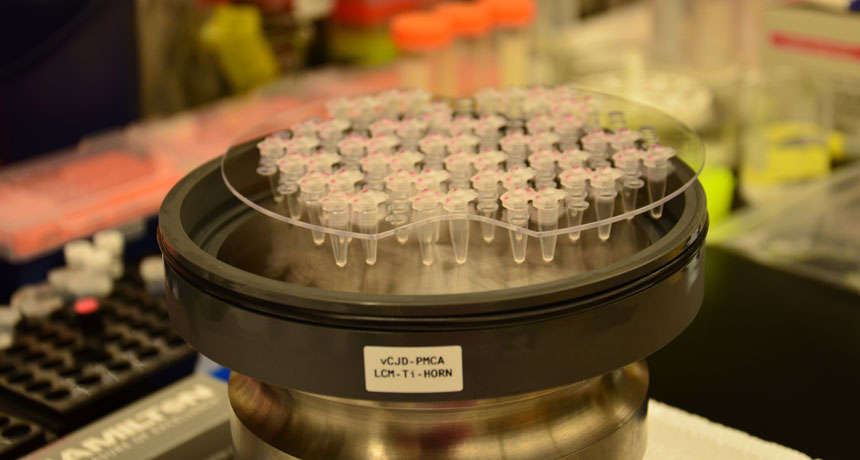New blood tests can detect prions
Screening could prevent spread of infectious proteins through transfusions

PRION PROPAGATION A technique called protein misfolding cyclic amplification can be used to test blood for infectious, disease-causing proteins called prions (an apparatus used in the process, shown). The test takes advantage of prions' ability to convert a normal brain protein into the prion form.
Luis Concha-Marambio







